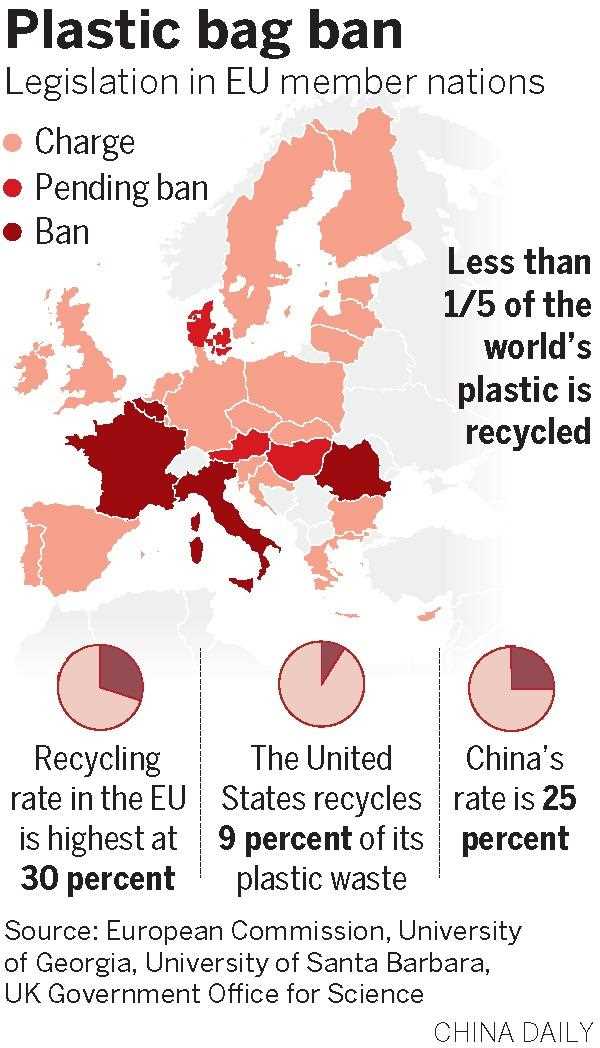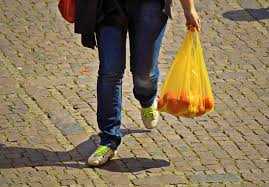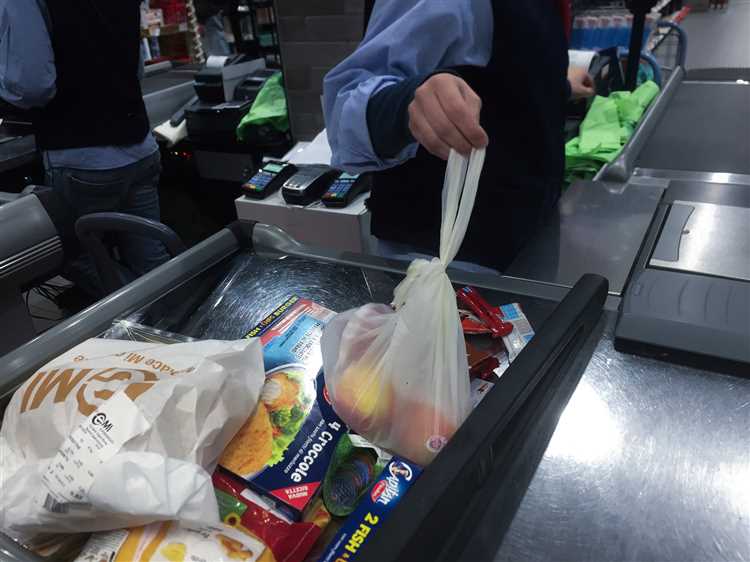
Italy, known for its picturesque landscapes and delicious cuisine, has taken a major step towards preserving its natural beauty by implementing a ban on plastic bags. This landmark decision, which aims to reduce the environmental impact of plastic waste, has set key dates for both consumers and retailers to adapt to the new regulations.
Starting from January 1st, 2022, Italian retailers will be prohibited from providing single-use plastic bags to customers at the point of sale. This means that shoppers will need to bring their own reusable bags or purchase eco-friendly alternatives, such as paper or cloth bags. The ban applies to all types of plastic bags, including those used for packaging fruits and vegetables.
The implications of this ban are far-reaching. By reducing the consumption of plastic bags, Italy aims to decrease plastic pollution, combat climate change, and protect marine life. Additionally, this ban will encourage a shift towards more sustainable practices, as retailers will be encouraged to provide biodegradable or compostable bags as alternatives. Consumers will also be incentivized to adopt eco-friendly habits and be more conscious of their plastic consumption.
- Key Dates:
- Deadline for Retailers to Comply
- Implications for Retailers
- Opportunities for Innovation
- Start of Fines for Non-Compliance
- Implications:
- 1. Environmental Benefits:
- 2. Promotion of Sustainable Practices:
- 3. Economic Shifts:
- 4. Changing Consumer Behavior:
- Reduction in Plastic Waste
- Promotion of Reusable Bags
- Q&A:
- What is the new plastic bag ban in Italy?
- Why did Italy decide to ban plastic bags?
- What are the implications of the ban?
- Are there any exceptions to the plastic bag ban?
- What is Italy doing to enforce the ban?
- Why did Italy ban plastic bags?
Key Dates:
- January 1, 2011: The Italian government introduced a ban on the free distribution of plastic bags in supermarkets and other retail outlets.
- January 1, 2012: The ban was extended to include small shops, markets, and street vendors.
- December 31, 2012: The ban was further expanded to include non-biodegradable bags made from materials other than plastic.
- January 1, 2013: The ban on non-biodegradable bags made from materials other than plastic came into effect.
- December 31, 2014: The Italian government mandated that all types of plastic bags must be biodegradable.
- January 1, 2015: The requirement for all plastic bags to be biodegradable took effect.
- October 1, 2016: The ban on lightweight plastic bags (thinner than 50 microns) used for fruit, vegetables, and other loose items was implemented.
Deadline for Retailers to Comply
The deadline for retailers in Italy to comply with the plastic bag ban is fast approaching. Starting from January 1, 2021, retailers will be prohibited from providing single-use plastic bags to customers. This ban is part of Italy’s efforts to reduce plastic waste and protect the environment.
Retailers will be required to find alternative packaging options for their products, such as reusable bags or biodegradable alternatives. This change will not only affect grocery stores but also other types of retailers, including clothing stores, electronics stores, and more.
Implications for Retailers
Retailers who fail to comply with the plastic bag ban by the deadline may face fines and penalties. It is important for retailers to take proactive measures to ensure they are prepared for the ban and have suitable packaging options for their customers.
Opportunities for Innovation
The plastic bag ban presents an opportunity for retailers to innovate and explore alternative packaging solutions that are more sustainable and environmentally friendly. This can include using paper bags, biodegradable bags, or promoting the use of reusable bags. By embracing these changes, retailers can demonstrate their commitment to sustainability and attract environmentally conscious customers.
Start of Fines for Non-Compliance
After the implementation of the plastic bag ban in Italy, there will be a transitional period during which retailers and consumers will have time to adjust to the new regulations. However, it is important to note that this phase will come to an end on [date].
From this date onwards, any retailer found to be non-compliant with the plastic bag ban will be subject to fines. The exact amount of the fines may vary depending on the severity of the offense and the size of the retailer. The fines will be enforced by local authorities, who will conduct regular inspections to ensure compliance.
In addition to fines for retailers, consumers who continue to use plastic bags may also face penalties. It is crucial for consumers to be aware of the alternatives to plastic bags and to actively participate in reducing their use. This can be done by bringing their own reusable bags when shopping or opting for paper bags, which are an acceptable alternative under the new regulations.
By imposing fines for non-compliance, Italy aims to create a strong deterrent against the use of plastic bags and encourage both retailers and consumers to adopt more sustainable practices. The fines serve as a way to ensure that the ban on plastic bags is taken seriously and effectively enforced.
| Key Dates | Implications |
|---|---|
| Implementation of plastic bag ban | Retailers and consumers must stop using plastic bags |
| [Date] | Start of fines for non-compliance |
| [Date] | End of transitional period |
Implications:
The plastic bag ban in Italy has several important implications for the country and its citizens. Here are some key impacts of the ban:
1. Environmental Benefits:
By banning plastic bags, Italy is taking a significant step toward reducing plastic waste and its negative impact on the environment. Plastic bags are known to be a major contributor to pollution and harm to wildlife. The ban will help to protect Italy’s natural habitats and preserve its unique biodiversity.
2. Promotion of Sustainable Practices:
The ban on plastic bags encourages consumers to adopt more sustainable practices. This includes using reusable bags made from eco-friendly materials, such as cotton or jute, when shopping. It also promotes a mindset of reducing waste and using products that have a longer lifespan to minimize environmental impact.
3. Economic Shifts:

The ban will likely lead to economic shifts in the retail and packaging industries. Businesses will need to find alternatives to plastic bags, such as paper bags or biodegradable alternatives. This shift may result in increased costs initially, but could also create new opportunities for companies that specialize in producing sustainable packaging solutions.
4. Changing Consumer Behavior:
With the ban in place, consumers will need to adjust their shopping habits and rely less on single-use items. This could lead to a cultural shift in how Italians think about and consume goods. It may also prompt them to explore other eco-friendly practices, such as reducing overall plastic usage in their daily lives.
In conclusion, the plastic bag ban in Italy has far-reaching implications that go beyond just reducing plastic waste. It signifies a commitment to environmental protection, promotes sustainable practices, drives economic shifts, and encourages a change in consumer behavior. It is a significant step towards creating a more environmentally conscious society.
Reduction in Plastic Waste

Italy’s plastic bag ban has been successful in significantly reducing plastic waste in the country. Since the implementation of the ban in 2011, the use of single-use plastic bags has decreased by over 90%. This has led to a substantial reduction in the amount of plastic waste that ends up in landfills and pollutes the environment.
The ban has also encouraged the use of reusable bags and alternative packaging options. Many consumers have switched to using cloth bags, paper bags, or other eco-friendly options when shopping. This shift in consumer behavior has contributed to further reducing the demand for single-use plastic bags and minimizing plastic waste.
In addition to the reduction in plastic bag usage, the ban has prompted increased awareness about the detrimental effects of plastic pollution on the environment. People are more conscious about their plastic consumption and actively seek ways to reduce their overall plastic waste. This has led to a broader movement towards sustainable and environmentally friendly practices.
Furthermore, the plastic bag ban has had a positive impact on marine life. With fewer plastic bags being used and discarded, there is a lower risk of marine animals ingesting or becoming entangled in plastic debris. This has helped to preserve the delicate marine ecosystem and protect marine species from the harmful effects of plastic pollution.
Overall, Italy’s plastic bag ban has been instrumental in reducing plastic waste, promoting sustainable practices, and raising awareness about the need to protect the environment. It sets an example for other countries to follow in their efforts to combat plastic pollution and create a more sustainable future.
Promotion of Reusable Bags
As part of Italy’s plastic bag ban, the government is actively promoting the use of reusable bags as a sustainable alternative. Various initiatives and campaigns have been launched to encourage consumers to shift towards using reusable bags for their shopping needs.
One of the key strategies employed by the government is the distribution of promotional reusable bags. Local supermarkets, grocery stores, and other retail outlets are encouraged to provide customers with affordable and durable alternatives to plastic bags. These reusable bags are often made from eco-friendly materials such as cotton, jute, or recycled fabrics.
In addition to distributing reusable bags, the government is also working on educating the public about the benefits of using them. Awareness campaigns are organized to highlight the environmental impact of plastic bags and to emphasize the advantages of reusable options. This includes showcasing the durability, versatility, and convenience of reusable bags, as well as their contribution to reducing waste and protecting the environment.
The promotion of reusable bags extends beyond the distribution and education efforts. The government has also implemented measures to incentivize their use. For instance, some municipalities have introduced discounts or special offers for customers who bring their own reusable bags when shopping. This serves as a motivating factor for individuals to adopt reusable bags and develop a habit of using them consistently.
Furthermore, the government is collaborating with companies and organizations to support the production and availability of reusable bags. By working with manufacturers and retailers, they are able to ensure a steady supply of affordable and high-quality reusable bags in the market. This helps to meet the increased demand and makes reusable bags more accessible to consumers.
Overall, the promotion of reusable bags is a crucial aspect of Italy’s plastic bag ban. By encouraging their use through various initiatives and campaigns, the government aims to reduce plastic bag consumption, minimize environmental pollution, and promote sustainable habits among citizens. Through these efforts, Italy hopes to create a culture of sustainability and responsible consumption that will have lasting positive effects on the environment.
Q&A:
What is the new plastic bag ban in Italy?
Italy has implemented a ban on single-use plastic bags. From January 1st, 2022, stores will no longer be allowed to provide lightweight plastic bags to customers.
Why did Italy decide to ban plastic bags?
Italy decided to ban plastic bags in order to reduce plastic pollution and promote environmental sustainability. The aim is to encourage people to use reusable bags and reduce their reliance on single-use plastics.
What are the implications of the ban?
The ban on plastic bags will have several implications. Firstly, it will encourage consumers to use reusable bags, which will reduce the production and waste of single-use plastics. Additionally, it will create an opportunity for the development of alternative eco-friendly packaging solutions.
Are there any exceptions to the plastic bag ban?
Yes, there are a few exceptions to the plastic bag ban in Italy. Lightweight plastic bags will still be allowed for certain purposes, such as packaging loose food items like fruits and vegetables, or for hygiene reasons in specific industries like pharmaceuticals.
What is Italy doing to enforce the ban?
Italy has implemented various measures to enforce the plastic bag ban. Stores found to be in violation of the ban can face fines and penalties. The government is also launching educational campaigns to raise awareness and promote compliance with the ban.
Why did Italy ban plastic bags?
Italy banned plastic bags in order to reduce plastic waste and protect the environment. Single-use plastic bags are a major source of pollution and contribute to the global plastic crisis. By implementing the ban, Italy aims to encourage the use of more sustainable alternatives and reduce the negative impact of plastic bags on the planet.